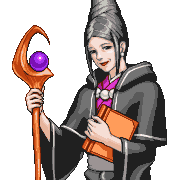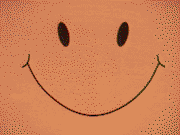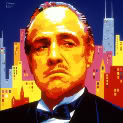|
ZoCrowes posted:Where are you getting a Feudal reading of Star Wars? Feudalism is based around land tenancy with tenants that are bound to that land under law. They provide goods and military services to a landlord who then provides goods and military service to their lord and so forth. No one actually owns any private property because it all is ultimately the property of the crown. The king may grant that land to a subject but in the end the king can always take it back. Henry Bolingbroke usurped Richard II as King of England because Richard reclaimed the wealthy Duchy of Lancaster for the Crown after the death of Henry's father. In a feudalist system Henry Bolingbroke did not OWN the Duchy of Lancaster the Crown did. It was his through feudal right because it passed to Henry from his father. However, the King in theory has the right to reclaim that property at any time. To trace the background of its genre briefly, the plot of STAR WARS is a chivalric romance plot. Chivalric romance as a specific form in western Europe was first developed in twelfth-century France by authors such as ChrÍtien de Troyes, and remained widely popular throughout the sixteenth century. The form was revived in the nineteenth century by poets such as Tennyson (whose Idyls of the King is a reworking of the fifteenth-century Morte d'Arthur of Malory), and writers like the socialist William Morris (in his Well at the World's End). These works and others like them filtered medieval romances though a gauze of nineteenth-century concerns. In turn, they became the sources of the sword-and-sorcery fantasies of the twentieth century, among them Tolkien's Ring series, begun in the 1930s, and contemporary works like Michael Moorcock's Sword Rulers series. So, even leaving aside the relation between chivalric romance and romantic (as opposed to realistic) novels, romance has been one of the most successful and long-lived of the fictional structures of Western culture. Romance developed originally in a period when the rigid class structure of the first stages of medieval feudalism began to relax enough for the formation of a commercial middle class and a lower order of nobility within the aristocracy itself. This lower order of nobility was formed primarily by the gradual granting of aristocratic status to the military class, the knights. In the twelfth and thirteenth centuries, this class came to share the legal status, but not the power and wealth, of the great lords. And it filled an increasingly bureaucratic and administrative role in the growing governmental apparatus dominated by the lords. Within this social framework, Arthurian romances like those of ChrÍtien (stories about the British King Arthur and his knights) articulated the desires of these lesser nobles for upward social mobility within the rigidly hierarchical feudal system. The fantasy structure of romance in this period depends on a combination of Germanic feudal military codes and the newly rediscovered Roman idea of the state and the Roman conception of imperial power as based on "popular sovereignty." It modifies earlier forms of Christianity, in which God forbade the taking of Christian lives, into a newer style of imperial Christianity, in which the state became the supreme moral force on earth and could order men to kill soldiers from rival Christian states in its name. Within this fantasy structure, military action for God and country (increasingly symbolized by an aristocratic woman) provides the path to recognition, fame and acceptance (that is, social mobility). Combat becomes a symbolic rite of passage that has social as well as individual implications. Romance fantasy was potentially revolutionary in the sense that it expressed desires for the overthrow of existing social hierarchies (often expressed through the reversal of male/female roles inherent in courtly love). But it finally served to support the existing hierarchy because the lesser nobility wanted to rise within the system and enjoy the fruits of being at the top rather than overthrow the system entirely, as the social conservatism of romance indicates. So as a genre, romance recognizes and expresses revolutionary impulses, but finally it defuses them and renders them harmless to the social structure as it exists. -Dan Rubey, "Star Wars: Not So Long Ago, Not So Far Away". August 1978.
|
|
|
|

|
| # ? May 14, 2024 09:54 |
|
Beeez posted:Guys, observe how long the Wookiepedia article for the Death Star plans is: http://starwars.wikia.com/wiki/Death_Star_plans/Legends What is it about that movie that makes people so crazy? I don't even think the Bible has caused so much crazy speculation about its characters. It's just a movie.
|
|
|
|
jivjov posted:Why? How is an EU novel any different than a sequel film? On some level, of course, if it is a licensed Star Wars product, then it is a Star Wars product. When you equate a hacked-out adolescent power fantasy, one of many with such mediocrity, stupidity, and incoherence that they had to be disowned (the S-canon stuff and below), with the movies . . . well, the people who make the stuff you like think that a lot the stuff you like is crap, man. That's how it's different.
|
|
|
|
He's saying that he doesn't think you can be creative while writing a story around an existing continuity jivjov.
|
|
|
|
Jack Gladney posted:What is it about that movie that makes people so crazy? I don't even think the Bible has caused so much crazy speculation about its characters. It's just a movie. I'm not overly familiar with either of these franchises, but I think this sort of thing happens to a lesser extent with Star Trek and Doctor Who as well. All nerdy things that are pretty undiscerning about who adds onto the "continuity" end up like this to some extent. I just think Star Wars is one of the worst victims of it.
|
|
|
|
RBA Starblade posted:He's saying that he doesn't think you can be creative while writing a story around an existing continuity jivjov. Well that's quite possibly the dumbest stance I've ever heard. All stories have some manner of continuity to them, due to taking place in the framework of linear time. (Although some people like to play with this; look at several of Tarantino's films, or Memento or something). But there's always something there. Sometimes it's the implied continuity from world building, sometimes there's one or two sequels/prequels, sometimes there's a whole universe of other stories. But i would argue it takes even MORE creativity to fit a story into an existing framework than it is to start from relative scratch.
|
|
|
|
RBA Starblade posted:He's saying that he doesn't think you can be creative while writing a story around an existing continuity jivjov. Not at all; what I object to is the implication that doing so is somehow more creative than an original interpretation of a setting.
|
|
|
|
Mechafunkzilla posted:Not at all; what I object to is the implication that doing so is somehow more creative than an original interpretation of a setting. Oh my bad.
|
|
|
|
Mechafunkzilla posted:Not at all; what I object to is the implication that doing so is somehow more creative than an original interpretation of a setting. One can tell a creative endeavor in an established universe that doesn't ignore or contradict other stories.
|
|
|
|
SuperMechagodzilla posted:To trace the background of its genre briefly, the plot of STAR WARS is a chivalric romance plot. Chivalric romance as a specific form in western Europe was first developed in twelfth-century France by authors such as ChrÍtien de Troyes, and remained widely popular throughout the sixteenth century. The form was revived in the nineteenth century by poets such as Tennyson (whose Idyls of the King is a reworking of the fifteenth-century Morte d'Arthur of Malory), and writers like the socialist William Morris (in his Well at the World's End). These works and others like them filtered medieval romances though a gauze of nineteenth-century concerns. In turn, they became the sources of the sword-and-sorcery fantasies of the twentieth century, among them Tolkien's Ring series, begun in the 1930s, and contemporary works like Michael Moorcock's Sword Rulers series. So, even leaving aside the relation between chivalric romance and romantic (as opposed to realistic) novels, romance has been one of the most successful and long-lived of the fictional structures of Western culture. That doesn't mean that the film reflects the medieval worldview any more than an animated Disney fairytale. I think you will find that American studio films of the late 20th century reflect the capitalist worldview. Isn't this film about liberal democracy defeating fascism?
|
|
|
|
jivjov posted:One can tell a creative endeavor in an established universe that doesn't ignore or contradict other stories. Sure you can. You can also ignore those stories if you want to do your own thing. The idea of a "fan" telling an artist what they are are aren't allowed to do with their story because of "continuity" is gross.
|
|
|
|
Mechafunkzilla posted:Sure you can. You can also ignore those stories if you want to do your own thing. In which case you probably shouldn't be writing for an established universe and should just go do your own thing.
|
|
|
|
jivjov posted:In which case you probably shouldn't be writing for an established universe and should just go do your own thing. I disagree. I love it when established universes or characters are reinterpreted. It's almost always more interesting to me than when an author sticks to an orthodox presentation of the material.
|
|
|
|
Mechafunkzilla posted:I disagree. I love it when established universes are reinterpreted. That's all well and good, but that doesn't mean you have to be a prick to people who like an ongoing continuity. And those reinterpretations should be clearly delineated as such. Ignoring continuity for the sake of ignoring continuity is a lovely move for people who enjoy the ongoing universe. Tell a what-if or whatever, but call it what it is.
|
|
|
|
The EU was mostly dogshit that some people got far too attached to. The saddest thing is that Disney validated any of it by creating their weird classification system with tiers of canon.
|
|
|
|
Serf posted:The EU was mostly dogshit that some people got far too attached to. The saddest thing is that Disney validated any of it by creating their weird classification system with tiers of canon. The tiers of canon existed well before Disney had any involvement with the franchise.
|
|
|
|
jivjov posted:That's all well and good, but that doesn't mean you have to be a prick to people who like an ongoing continuity. This is some dishonest bullshit. Your stance isn't that you "like an ongoing continuity", it's a totalitarian view that artists shouldn't be allowed to do things that break from that so-called continuity, as defined by the dubious criteria of "canon".
|
|
|
|
jivjov posted:The tiers of canon existed well before Disney had any involvement with the franchise. Oh, my bad, it was always sad then.
|
|
|
|
Disney scrapped the tiers and said 'none of this bullshit happened' though...
|
|
|
|
jivjov posted:That's all well and good, but that doesn't mean you have to be a prick to people who like an ongoing continuity. The only issue here is with your own fixation on continuity. Without it you'd be free to enjoy both sets of stories that take place with the Clone Wars, rather than bemoaning one account of fictional history overwrote another. Free your mind Jivjov
|
|
|
|
Steve2911 posted:Disney scrapped the tiers and said 'none of this bullshit happened' though... Actually the existing continuity was relegated to basically an alternate timeline called Legends. The canon tiers still exist, but they only apply to the Legends timeline, and would affect any future Legends stories.
|
|
|
|
Steve2911 posted:Disney scrapped the tiers and said 'none of this bullshit happened' though... I can't wrap my head around why anyone would care what Disney says or didn't say "happened". It's all fiction, and the stories still exist if you want to read and enjoy them.
|
|
|
|
Neo Rasa posted:There are people that honestly think Alien 3 and Prometheus would be better films if they were just two hours of James Cameron reading aloud the Colonial Marines Technical Manual directly to the camera. Well if it was Patrick Stewart it would be.
|
|
|
|
Neurolimal posted:Creativity and ingenuity can thrive from adversity and challenge. There's limits to this and they've long since been surpassed at the point where a filmmaker is expected to respect the details of the descriptive text on a unit-specific card for a miniatures tactics game. jivjov posted:One can tell a creative endeavor in an established universe that doesn't ignore or contradict other stories. It is, of course, possible. As a practical matter, however, human beings have limited time and attention. Blockbuster filmmaking is a frantic enterprise and people react poorly to the idea that the limited resources of the filmmakers should be occupied accommodating information that an extremely small part of the audience will possess. In particular, there is a massive disparity between the size of the audience that can appreciate continuity with the wildly popular films and the size of the audience that can appreciate continuity with anything outside the films.
|
|
|
|
Wait human beings actually liked Prometheus? I thought it was just SMG.
|
|
|
|
Lord Krangdar posted:I just really don't get the appeal of canon and continuity past a certain point. Like how the MCU movies all tie together- why is that exciting? I'll never understand it. If you can't/won't relate art to yourself in terms of abstract ideas, then all you have left are more concrete models: this is what would happen if the Force was real; this is how I can spend time with my 'friends' Iron Man and Chewbacca. In this mode, art is understood by proxy, reflected back to us by a 'secondary world' where the work is superficially true instead of just being meaningfully true. It's incestuous, because both art and audience become warped around this filter - audiences demand a "canon" and works spawn litters of dead-eyed sequels and EU novels, because that's what you need to maintain the secondary world. The original ideas are crushed beneath the weight of accumulated cruft and disappear.
|
|
|
|
Mechafunkzilla posted:This is some dishonest bullshit. Your stance isn't that you "like an ongoing continuity", it's a totalitarian view that artists shouldn't be allowed to do things that break from that so-called continuity, as defined by the dubious criteria of "canon". I'm fine with artists ignoring canon, by issue is when they do so without being honest about it. Tell a what-if, or a reinterpretation or start a new timeline. Don't release a product that is ostensibly in the same continuity but ignores parts of it.
|
|
|
|
jivjov posted:Actually the existing continuity was relegated to basically an alternate timeline called Legends. The canon tiers still exist, but they only apply to the Legends timeline, and would affect any future Legends stories. Yeah, that's them saying none of it happened.
|
|
|
|
Steve2911 posted:Yeah, that's them saying none of it happened. Steve2911, I have some bad news for you...none of it (even the new Story Group Canon) happened. It's fiction. But there can be a continuity to fiction. And now Star Wars has both Canon and Legends.
|
|
|
|
jivjov posted:I'm fine with artists ignoring canon, by issue is when they do so without being honest about it. Tell a what-if, or a reinterpretation or start a new timeline. Don't release a product that is ostensibly in the same continuity but ignores parts of it. It's fiction. Literally all of it is "what-if". If your problem is actually that titles don't have appropriate subheadings, that's...a personal problem. It can be corrected with a sharpie.
|
|
|
|
Mechafunkzilla posted:This is some dishonest bullshit. Your stance isn't that you "like an ongoing continuity", it's a totalitarian view that artists shouldn't be allowed to do things that break from that so-called continuity, as defined by the dubious criteria of "canon". A prime example is when they complained that George Lucas had Admiral Ackbars running around in the prequels when obviously, as everyone knows the people of the planet Dac didn't have contact with the outside world until the Empire was already a thing, as a tabletop RPG clearly stated.
|
|
|
|
Steve2911 posted:Yeah, that's them saying none of it happened. Yeah but they're already writing new books and comics for the new EU so uhhh...
|
|
|
|
Mechafunkzilla posted:I can't wrap my head around why anyone would care what Disney says or didn't say "happened". It's all fiction, and the stories still exist if you want to read and enjoy them. This is the correct position. If something that happens in a Star Wars book contradicts a think that happened in a Star Wars comic, take a deep breath and move on.
|
|
|
|
Jack Gladney posted:That doesn't mean that the film reflects the medieval worldview any more than an animated Disney fairytale. I think you will find that American studio films of the late 20th century reflect the capitalist worldview. Isn't this film about liberal democracy defeating fascism? Disney fairy tales are also likely to be examples of feudalist ideology. One obvious example is the Lion King, which centers around the king's suppression of a revolt by the loathsome, trash-eating hyenas. Of course you have the cynical observation 'these movies were only made to make money', but that's a distraction. The question is how they are making the money - what fantasy do they sell to the audience? And that depends on what film you are referring to. There is little or no sign of democracy in the original trilogy. It's just one of those assumptions, like "oh yeah the badguys are totalitarians, so obviously the heroes believe in liberal democracy" - but there is effectively no evidence of that being the case. Then, of course, the satirical prequels reveal that they actually are fighting for a liberal democracy - to the chagrin of fans who wanted less 'politics' and more valiant knights on a holy quest. Also, it bears noting that only two out of the six Star Wars films feature fascist enemies. In Empire Strikes back, the villain is Darth Vader, who is not a fascist (and is, in fact, plotting against the fascists). And, in Episode 3, Anakin is a fascist antihero fighting against everything he sees as corrupt, and ultimately killing himself in the process. SuperMechagodzilla fucked around with this message at 20:57 on Jan 28, 2016 |
|
|
|
SuperMechagodzilla posted:Disney fairy tales are also likely to be examples of feudalist ideology. One obvious example is the Lion King, which centers around the king's suppression of a revolt by the loathsome, trash-eating hyenas. Of course you have the cynical observation 'these movies were only made to make money', but that's a distraction. The question is how they are making the money - what fantasy do they sell to the audience? No, the ideology of Star Wars and its two sequels is one of late capitalism--that individual actors rise though virtuous action that also ensures material success and that a free market is inherently meritocratic and just as the net result of individual action. Outside the empire there's capitalism, and that's what Princess Leia the senator seems to want to reproduce everywhere in opposing the empire. It's an American fairy tale made by a bourgeois autistic car fanatic.
|
|
|
|
What the poo poo just happened. edit: This is amazing. Caught it and it made the thread so much better.  and for continuity. 
kiimo fucked around with this message at 21:25 on Jan 28, 2016 |
|
|
|
kiimo posted:What the poo poo just happened. A creative break in thread continuity
|
|
|
|
SuperMechagodzilla posted:Disney fairy tales are also likely to be examples of feudalist ideology. One obvious example is the Lion King, which centers around the king's suppression of a revolt by the loathsome, trash-eating hyenas. Of course you have the cynical observation 'these movies were only made to make money', but that's a distraction. The question is how they are making the money - what fantasy do they sell to the audience? This is probably a wild abuse of the word feudal.
|
|
|
|
Opposing fascists does not immediately cause someone to be non-fascist; Vader offered an overthrow of the Emperor, not of the regime. The jedi council was fascist (as was required of their role in governance), attempting to overthrow Palpatine (who abused two races to create an artificial war with which to eliminate freedoms and checks on the chancellor position) did not un-fascist them.
|
|
|
|

|
| # ? May 14, 2024 09:54 |
|
I actually love that Disney did a reset and purposely plan out how everything interconnects. Everything that has come out post Disney acquisition has owned. Rebels is better than the prequels, the comics are (mostly) good, and TFA truly started to make things right again. Was the older EU all bad? No. Shadows of the empire owned. But for me, and I realize this is like a me holding on to youth things, I want certain things to "count" and be cannon and to be told what that stuff is. I get a kick out of it.
|
|
|


























